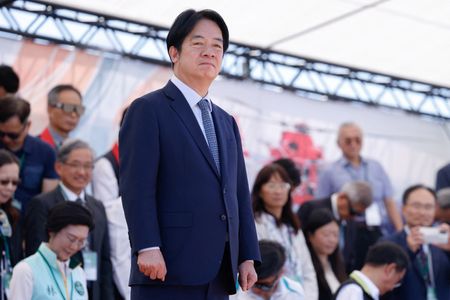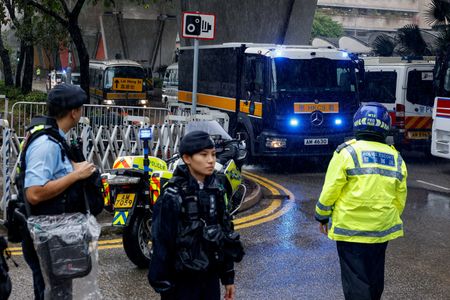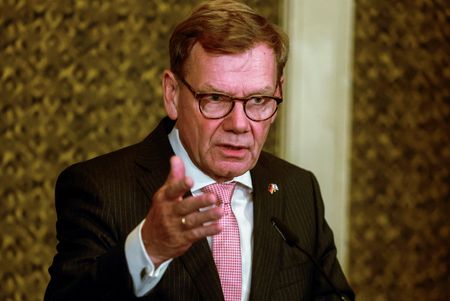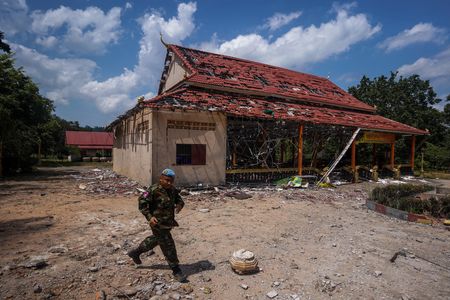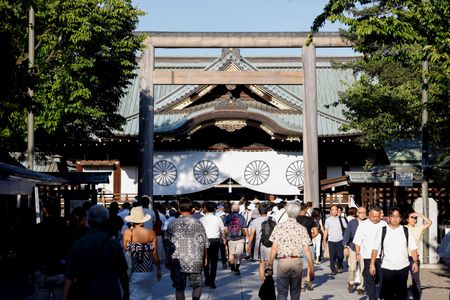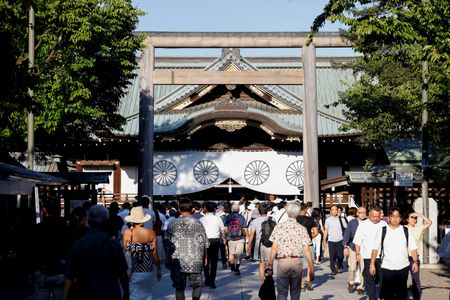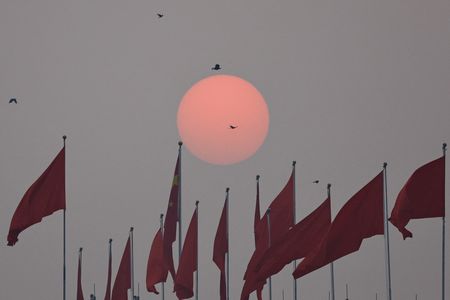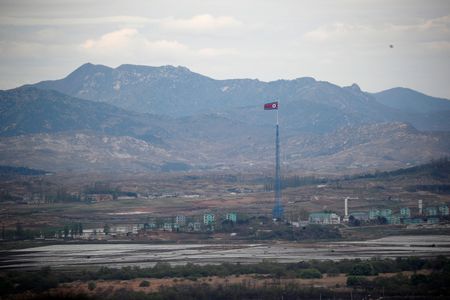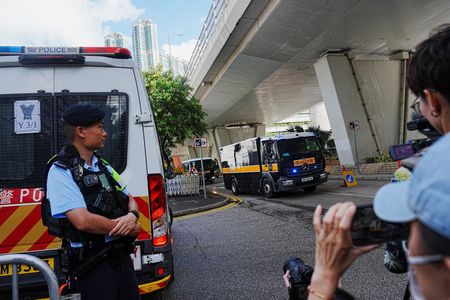By Ben Blanchard and Faith Hung
TAIPEI (Reuters) -Taiwan’s people should spurn China’s events to commemorate the end of World War Two, including a military parade in Beijing, given Chinese “distortion” of history and threats against the island, Taipei’s top China-policy maker said on Friday.
China, which views democratic Taiwan as its own territory, has invited Taiwanese veterans who fought against Japan to the parade next month which will be overseen by President Xi Jinping.
Taiwan has denounced China for using this year’s 80th anniversary of the war’s end for political purposes against Taipei, saying Beijing has falsely claimed it was the Communist Party that led the fighting against Japan rather than the Republic of China government, which at the time ruled China.
The republican government then fled to Taiwan in 1949 after finally being defeated by Mao Zedong, who then established the People’s Republic of China, while Republic of China remains Taiwan’s official name.
In a video released by his office, Taiwan’s Mainland Affairs Council Minister Chiu Chui-cheng said the People’s Republic of China did not even exist during World War Two.
“The Chinese Communist regime has repeatedly distorted the facts in recent years, claiming that the war against Japan was led by the Communist Party, and has even fabricated the notion that Taiwan belongs to the People’s Republic of China,” Chiu said.
The government urges Taiwan’s people to “unite and jointly defend national sovereignty and dignity” and not take part in China’s war commemorations, like the parade, he added.
People should instead participate in Taiwan’s own events to express their resolve to protect Taiwan and oppose aggression, Chiu said.
China’s Taiwan Affairs Office did not immediately respond to a request for comment.
China has for its part also accused Taiwan of distorting the history of the war for its own purposes.
In a statement posted on his Facebook page earlier on Friday to mark the anniversary, Taiwan President Lai Ching-te said, without directly mentioning China, that aggression only leads to defeat, and as authoritarianism once again gathers strength, it is important that freedom and democracy prevail.
“The most valuable lesson of World War Two is that unity leads to victory, while aggression leads to defeat,” he wrote.
China calls Lai, who rejects Beijing’s sovereignty claims, a “separatist” and has rebuffed his offers of talks.
Late on Thursday, Taiwan said it had banned government officials and former senior defence, intelligence and diplomatic officials from attending Beijing’s military parade.
(Reporting by Ben Blanchard and Faith Hung; Editing by Raju Gopalakrishnan)

